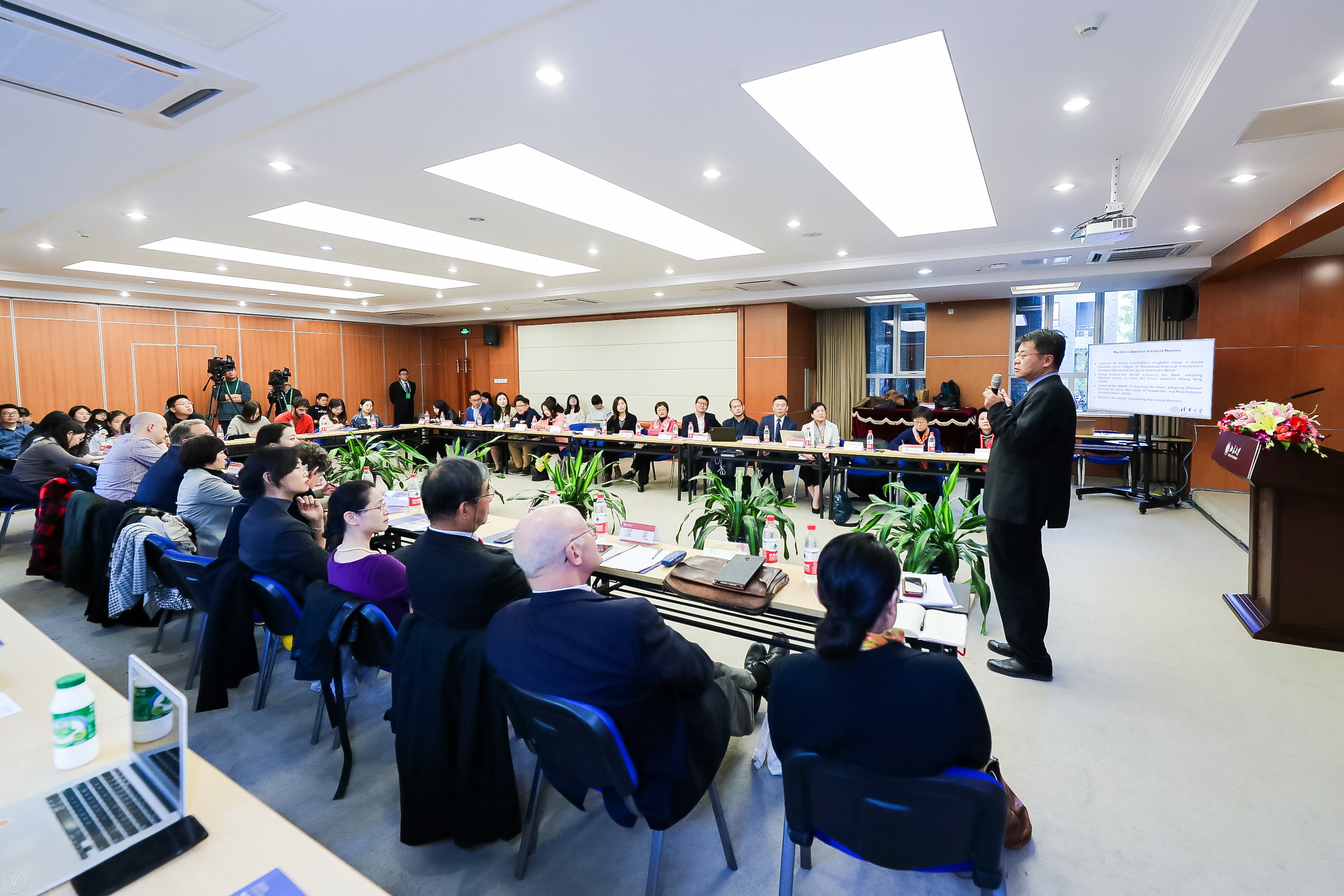Peking University, Oct. 29, 2019: Peking University (PKU) hosted the 2019 International Media Forum on October 26 with the theme, "Changes in the World and International Communication."
Jointly sponsored by PKU's School of Journalism and Communication and the Global Times Foundation, the forum invited media scholars and journalists from home and abroad for a face-to-face discussion with policymakers, leaders from all walks of life and trendsetters like young college students.
The morning session was moderated by Tian Wei, host of CGTN from China Media Group and the afternoon session was moderated by He Shu, co-founder of this forum and associate professor at PKU School of Journalism and Communication.
When explaining the theme of this year’s forum, He Shu said, “This world is too noisy with unregulated online expressions. It is evident that media and journalism play a vital role in establishing healthy international relations. I hope that during today’s forum, there are no winners or losers. All of you present have the right to speak up and express your ideas freely. I hope that by discussing these key issues on equal footing, we can build an innovative environment for international communication and embody the very essence of communication in doing so. Furthermore, we hope that the free exchange of ideas on this platform can further contribute to the development of international relations and communication.”
 He Shu
He Shu
Five distinguished speakers specialized in politics, economics, international relations and other fields delivered speeches in the morning session.
The morning session
Douglas H.Paal, former vice president of Carnegie Endowment for International Peace, gave his speech explaining the impact of media on China-US relationship from a historical perspective. He offered the audience a backdrop on how China and the West had been interacting over hundreds of years through media and explained how the landscape of media had been changing, given the changes in bilateral relationship, and moving factors. “Media has to pay more attention to fact-checking, not just relying on politicians as they have a very different starting point and intentions,” Paal said.
Robert A. Kapp, former president of the US-China Business Council, offered his insights on China-US relationship. He believes that the interpretation of history is constantly changing and being reinterpreted, which challenges former understandings of history. He says that media should not slice America and China into two separate worlds. It is both America's and China’s responsibility to make sure that the media defends understanding through knowledge, rather than transcending trends.
Wang Dong, deputy director of PKU Office for Humanities and Social Sciences gave his speech on the impact of artificial intelligence, the ethics, and how technology should be used in media fields.
Nathan Rich, technical executive and political commentator, said he believes that the miscommunication between China and the West lies in the fact that there is only a lexicon of views in the West about China, resulting in the lack of knowledge on “how China sees itself and the world”. Having lived in China for some time, Rich expressed his hopes for China to push outward, engage her global reach, defend against rumors and assumptions and get her voice heard by the rest of the world. Rich said, “Social media is an extension for who we are, but it has changed the landscape for who we are.” Rich believes that there should be an entity responsible for the neutrality of news reports in the media.
Ei Sun OH, a senior fellow at Singapore Institute of International Affairs and principal Adviser for Pacific Research Center of Malaysia, spoke from a South East Asian perspective. He said, “Today is a time of extreme demands, euphemism for the widespread of terrorism.” On cross-cultural commenting, he said that everything needs to be laid out from several perspectives. “We need to wear several hats, and look at issues from the Chinese perspective and the American perspective. Nobody should be advocating for wars against nations, and everyone, especially media professionals, should carry the responsibility of advocating for peace," he said.
Five veteran journalists from People’s Daily, Xinhua News Agency, the Global Times, Russian media SPUTNIK and US-China Perception Monitor of the Carter Center joined in the media interaction with the speakers.
 Group photo of the morning session
Group photo of the morning session
There were also ten distinguished speakers from journalistic academia and practitioners in the afternoon session. Presentations on international communication, cross-culture, bi-lingual journalism, social media, media values and ethics all provided rich content and insights for the audiences.
 The afternoon session
The afternoon session
Hailing the forum a success, Xue Xiaole, deputy general secretary of the Global Times Foundation, said that it is highly significant for journalists and media scholars to come together to discuss issues that are relevant in this day and age. It is also the responsibility of media scholars and practitioners to help create a healthier environment for international relations and communications, he added.
Group photo of the afternoon session
Written by: June Tan Rui Min
Edited by: Huang Weijian




